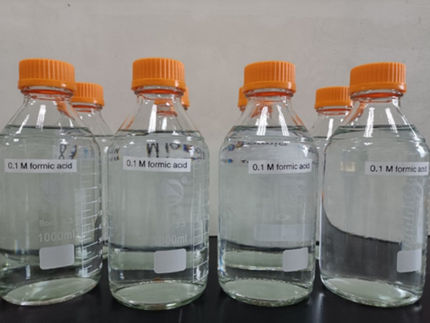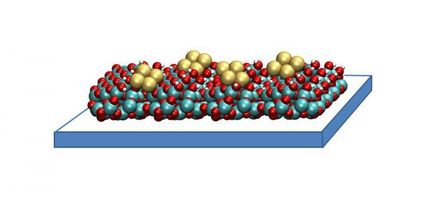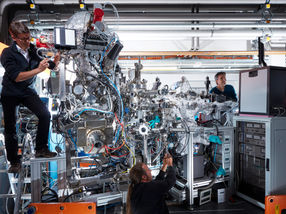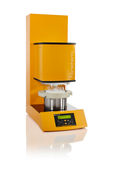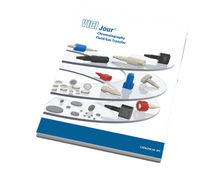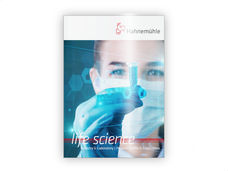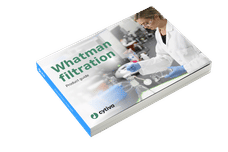Revolutionary new materials for troubled carbon times
Super filters the world can afford
Advertisement
Around 2800BC, the ancient inhabitants of Ur, Mesopotamia made a discovery that was to change civilization. They learned that if they blended copper and tin into an alloy, the new composite material was stronger, more useful, and more valuable than any man-made substance to date. It gave its name to the entire age it revolutionized. Bronze.
More than 4000 years later researchers from Kyoto University's Institute for Integrated Cell-Material Sciences (iCeMS), London's Imperial College and City University of Hong Kong, reveal how they are using this age-old method to develop similarly revolutionary new materials that will address one of the huge problems affecting the 21st century: how to capture and store carbon dioxide.
"It's easy to overlook the colossal scale of the problem," explains Professor Easan Sivaniah, who led the study into developing Mixed Matrix Membranes (MMMs), the highly-engineered thin polymer super filters that will potentially revolutionize carbon capture and storage (CCS) technology. The largest coal-fired power stations can emit enough carbon dioxide in a single day to fill the Great Pyramid of Giza 12 times. And there are over five thousand large fossil fuel based power stations, averaging about 500 megawatt output, operating globally with more coming online. That it is a phenomenal volume of greenhouse gas to separate and store.
"Until now polymer membrane technologies for gas separation applications have not been up to the task," Sivaniah says. Either they are too slow, or as the paper reveals, in the case of high permeability polymers, they rarely generate sufficient 'selectivity' - the capability to separate gases - for energy efficient CO2 capture. This has major cost implications for implementation of membrane technologies in large-scale carbon capture projects.
There lies the rub. In a study published in 2016 in Nature Energy, David M. Rainer of the Judge Business School at the University of Cambridge, demonstrated how the vast majority of the billion-dollar CCS demonstration projects initiated in North America, the European Union and Australia in the 2005-2009 heydays of CCS optimism effectively now lay in ruins.
"For CCS to begin to play a larger role in reality rather than simply in the models of future deployment," Rainer concludes, "it is imperative to begin to differentiate more and less costly technologies [if] CCS is to emerge from its own Valley of Death".
Prof. Tatsuo Masuda, the former project leader of "The Carbon Management Coalition (CMC)", an initiative by the Global Agenda Council on Decarbonizing Energy under the World Economic Forum, emphasizes: "Emerging technologies from the most highly advanced universities, such as those developed by Professor Sivaniah in Kyoto, that address both performance and cost challenges in CCS, must be accelerated towards pilot and implementation activities, as the need for such technological breakthroughs is the highest it has ever been. It is key."
"Like those ancient Mesopotamians, when faced with new demands we needed new revolutionary materials," explains Sivaniah. The group, keenly aware of issues of affordability, as well as speed and selectivity, turned to MOFs. These are the nanosized additives pioneered by pre-eminent Japanese scientist Susumu Kitagawa. Incorporating these revolutionary nanosized particles into a state of the art polymer, PIM-1 originally discovered in Manchester University by Professors Peter Budd and Neil McKeown, the international team has managed to create mixed matrix membranes (MMMs) with substantial selectivity enhancements.
"We have greatly enhanced their capabilities, which means that we can potentially bring huge cost reductions to large-scale CCS programs. A tenfold reduction in large project costs is not unimaginable, which may well bring CCS programs back within the realm of political acceptability".
Original publication
Behnam Ghalei, Kento Sakurai, Yosuke Kinoshita, Kazuki Wakimoto, Ali Pournaghshband Isfahani, Qilei Song, Kazuki Doitomi, Shuhei Furukawa, Hajime Hirao, Hiromu Kusuda, Susumu Kitagawa & Easan Sivaniah; "Enhanced selectivity in mixed matrix membranes for CO2 capture through efficient dispersion of amine-functionalized MOF nanoparticles"; Nature Energy; 2017



